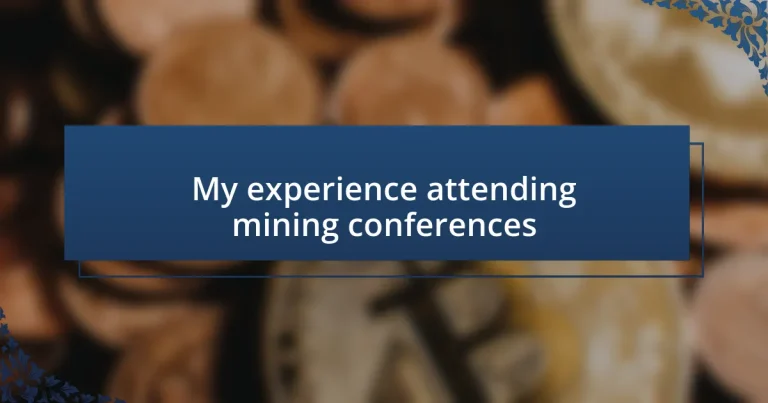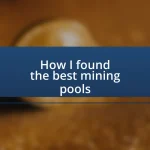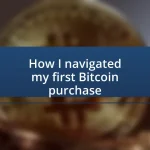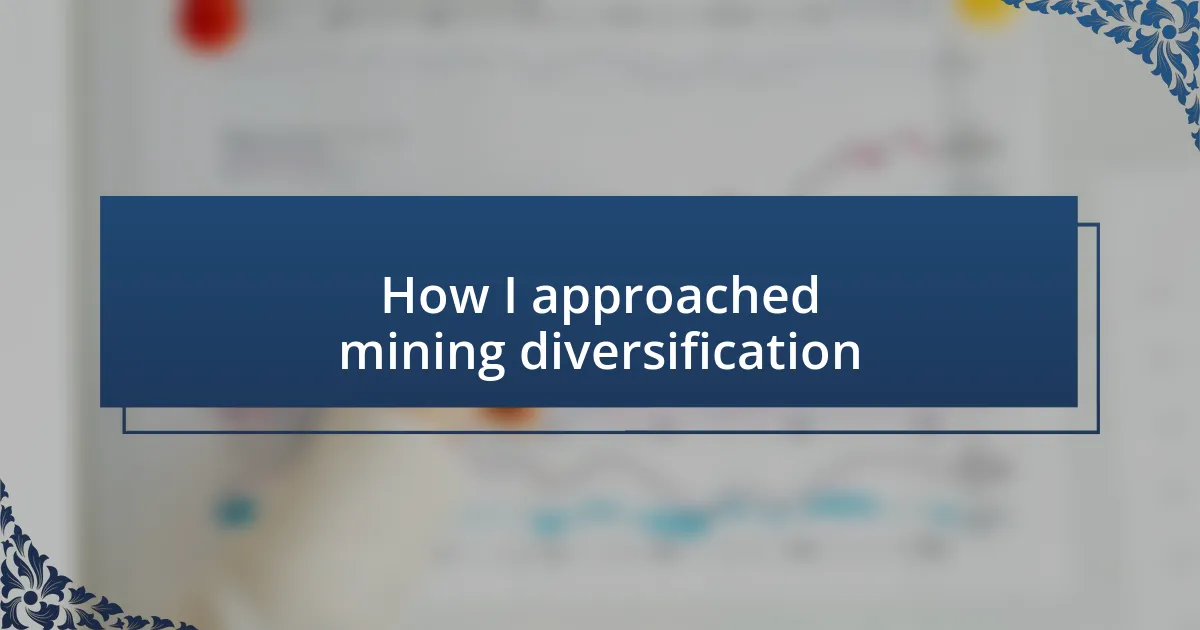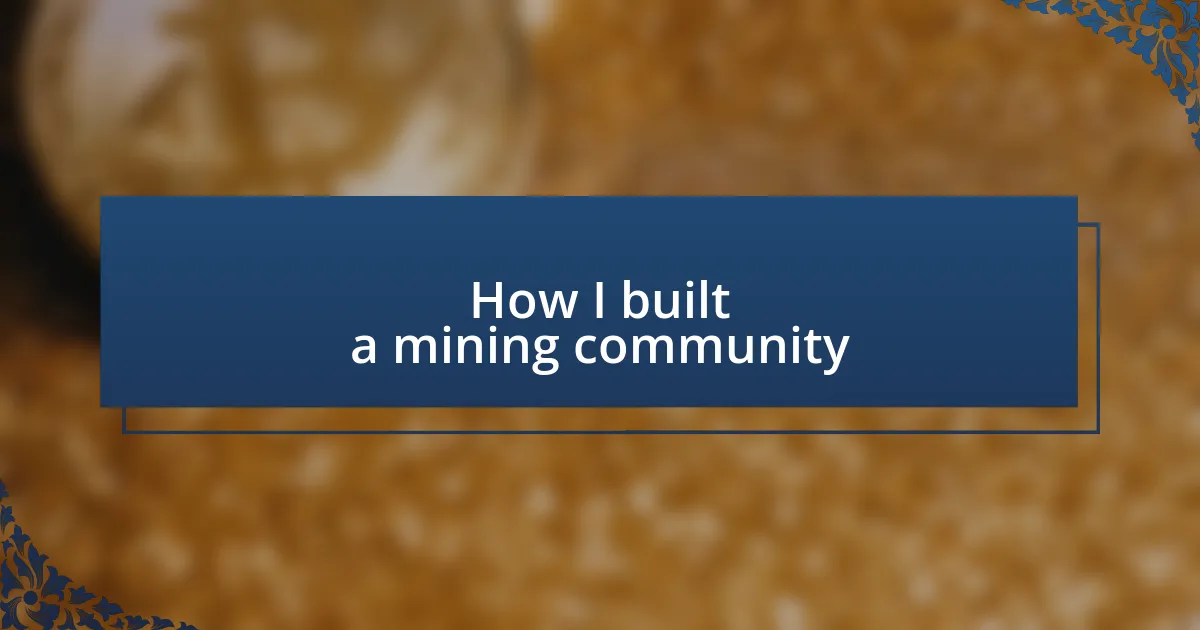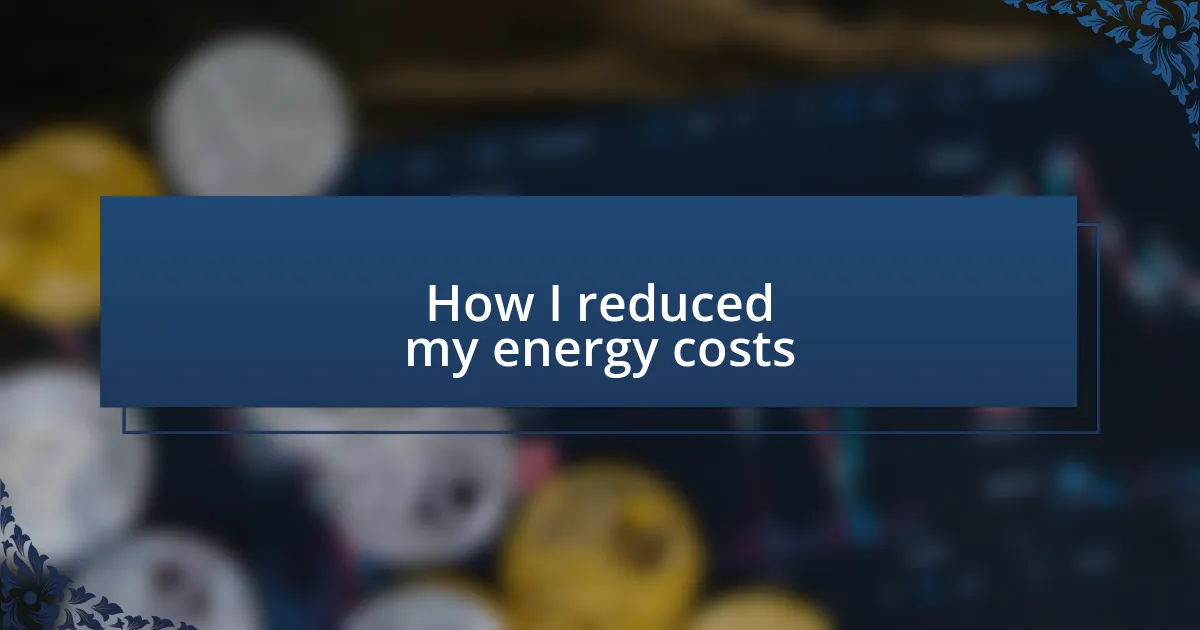Key takeaways:
- Mining conferences facilitate networking opportunities that can lead to valuable professional relationships and collaborations.
- Attending sessions and workshops enhances knowledge and inspires innovative ideas for practical application in the industry.
- Preparation, including researching speakers and scheduling key sessions, is essential for maximizing the conference experience.
- Post-conference actions, like following up with new connections and implementing learned insights, are crucial for lasting impact.
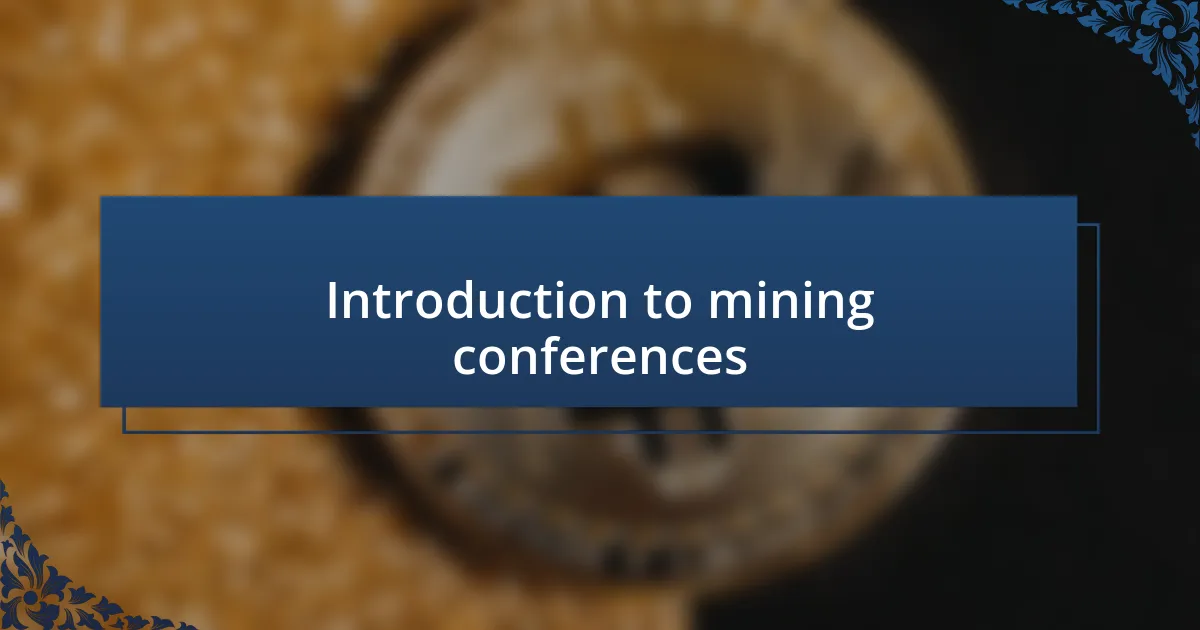
Introduction to mining conferences
Mining conferences offer an invaluable opportunity for professionals in the industry to connect, share knowledge, and discuss the latest innovations. I remember my first conference vividly; the buzz in the air was palpable, and I felt a mix of excitement and nervousness as I navigated through a sea of experts. Can you imagine walking into a venue filled with passionate individuals who share your interests?
What struck me most was the diversity of topics covered at these events. From technological advancements to sustainability practices, every session brought fresh insights that sparked new ideas in my mind. I found myself eagerly jotting down notes, driven by the enthusiasm of speakers who truly believe in the future of mining. How often do we get to be around such a concentrated source of knowledge and inspiration?
Moreover, the networking opportunities are simply unmatched. I recall striking up a conversation with a leading geologist over coffee, which eventually led to a collaborative project. It’s moments like these that remind me of the power of community in our field. Have you ever experienced a chance encounter that changed your perspective?
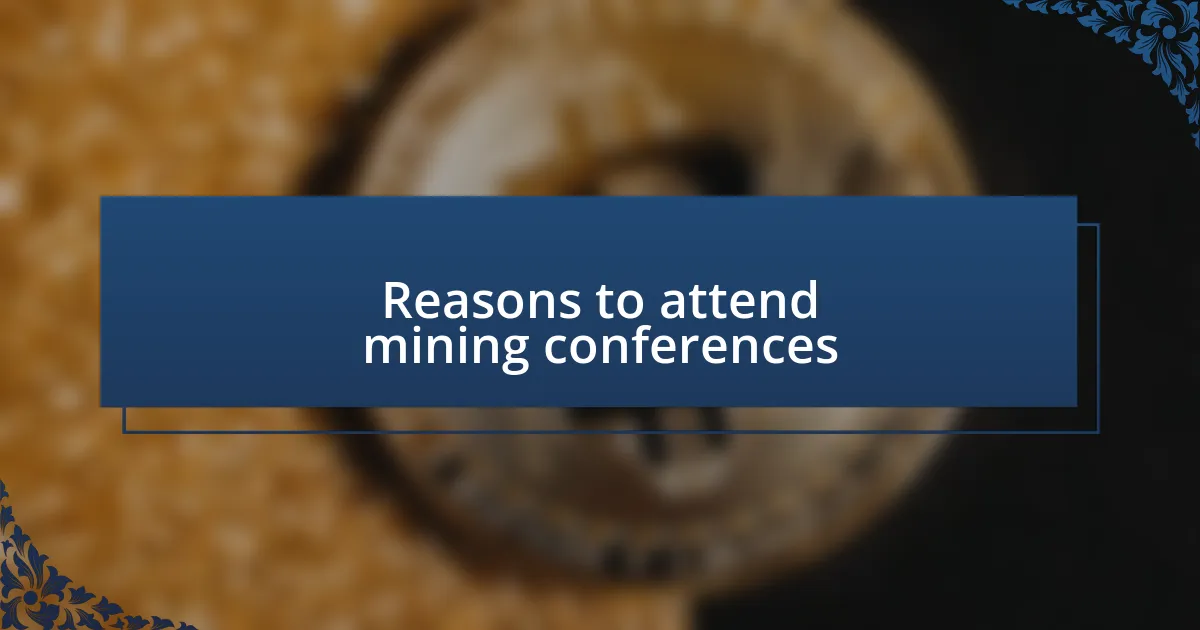
Reasons to attend mining conferences
Attending mining conferences provides a platform for continuous learning and professional development. I vividly recall sitting in a workshop focused on emerging mining technologies, where experts shared real-world applications that I had never considered before. This kind of exposure can not only enhance your knowledge but also inspire innovative ideas that you can implement in your own work. Isn’t it fascinating how a single session can reshape your approach to a problem?
One of the standout reasons to attend these events is the opportunity to meet industry leaders and visionaries. I still remember the moment I had the chance to ask a renowned engineer about their methods for improving safety at mining sites. The insights shared during that brief conversation have stayed with me and influenced my safety protocols ever since. Engaging with such experts can open doors to mentorship and insight that you simply cannot find elsewhere.
Additionally, these conferences serve as a melting pot for different perspectives and experiences within the mining industry. I discovered this firsthand during a panel discussion on sustainable practices. Hearing diverse viewpoints from professionals across various sectors made me appreciate our industry’s complexities even more. It’s a wealth of knowledge that can help us all strive toward better practices.
| Reason | Example/Insight |
|---|---|
| Continuous Learning | Workshops and sessions can reshape your problem-solving approach. |
| Networking Opportunities | Conversations with industry leaders can lead to mentorship. |
| Diverse Perspectives | Panel discussions highlight the complexity of the mining industry. |
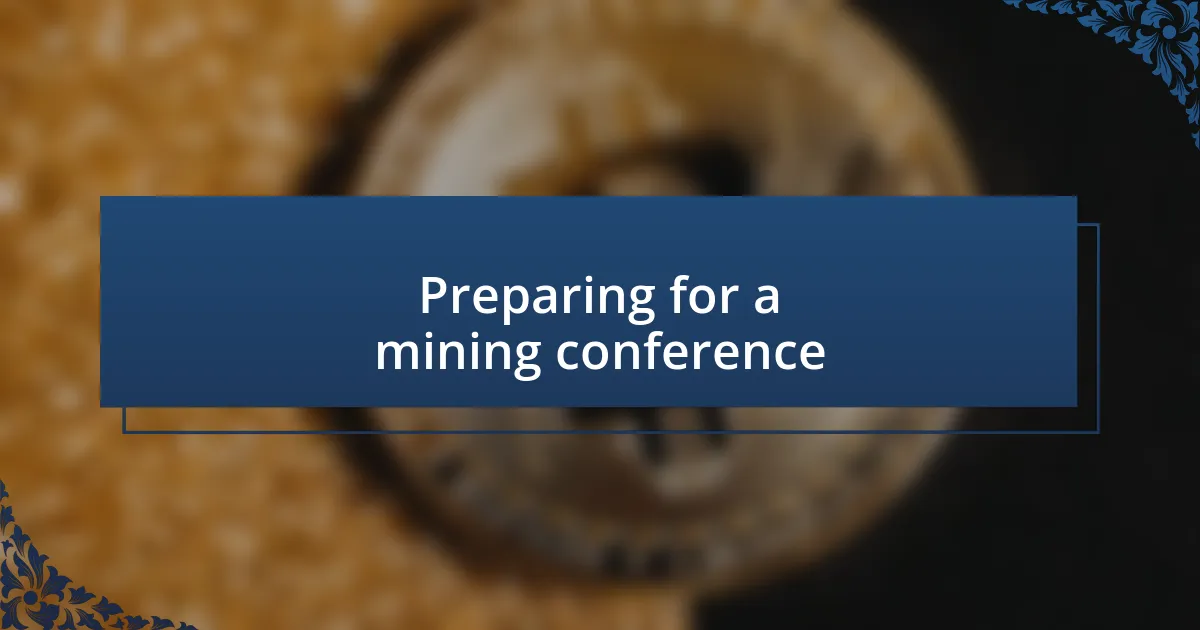
Preparing for a mining conference
Preparing for a mining conference can feel a bit daunting, but I find that a little organization goes a long way. I still recall my first conference; I didn’t know what to expect and ended up overwhelmed on the first day. I learned the hard way that preparation is key to making the most of the experience. I now create a checklist before I attend that includes reviewing the agenda and mapping out key sessions I want to attend.
- Research speakers and topics of interest.
- Plan networking opportunities and reach out to attendees in advance.
- Prepare specific questions for sessions to get the most out of discussions.
- Pack essential materials, like business cards and a notepad.
- Schedule downtime to process what I’ve learned.
Having this plan allows me to navigate the event more smoothly and helps me focus on absorbing knowledge rather than just trying to figure out where to go next.
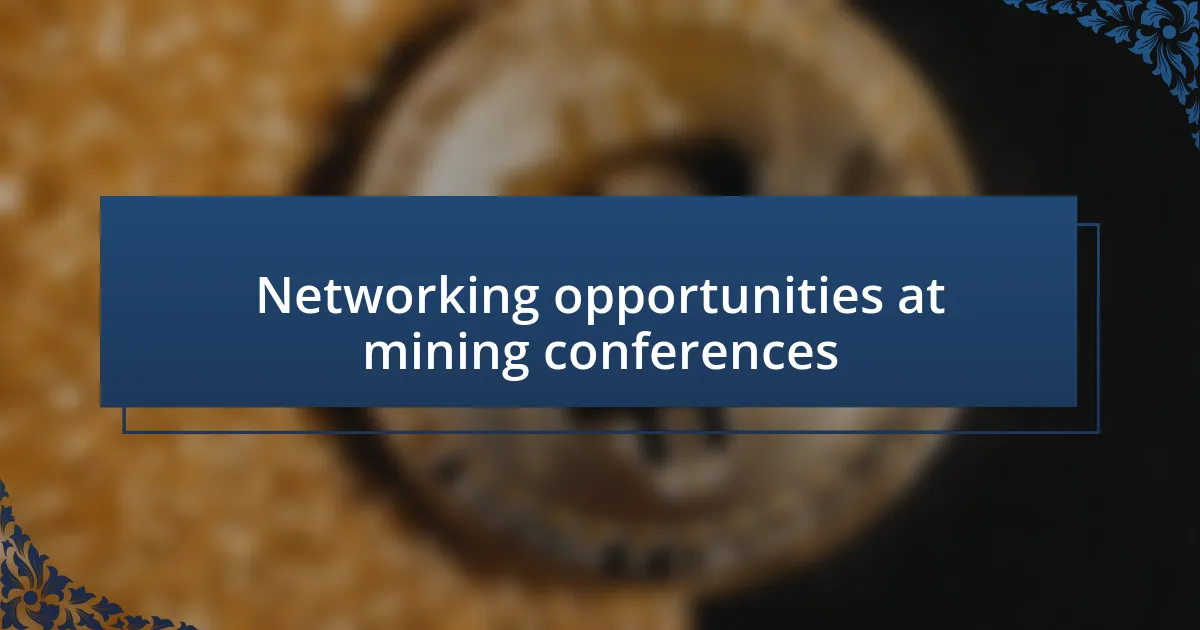
Networking opportunities at mining conferences
Capturing networking opportunities at mining conferences is one of the most rewarding aspects of attending. I remember standing beside a fellow attendee during a lunch break and, after a brief chat about our experiences in the field, we exchanged contact information. This simple conversation led to a collaboration that I still value today, highlighting how organic interactions can cultivate professional relationships.
During my last conference, I made it a point to attend networking events specifically designed for mingling. The energy in the room was palpable, filled with professionals eager to share insights and explore potential partnerships. I struck up a conversation with a representative from a leading technology firm, which opened doors for discussions around integrating new solutions in mining operations. Have you ever considered how a single interaction could pivot your career?
I find that conferences often create an atmosphere where people are more open to discussions than in other settings. I try to approach attendees with genuine curiosity about their work. When I share my own insights, I notice the conversation flows more naturally. The key, in my experience, is to show authenticity; a sincere interest in others often leads to valuable connections that extend beyond just business cards.
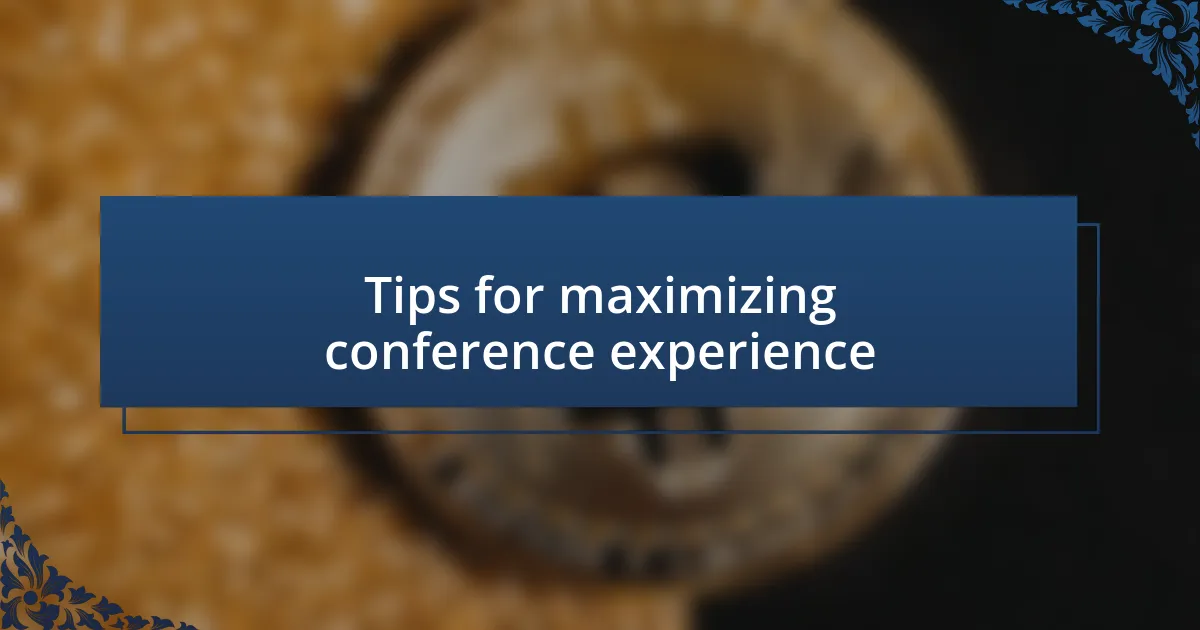
Tips for maximizing conference experience
Maximizing your conference experience often starts with planning. Before attending, I like to map out which sessions interest me the most and mark them on the conference schedule. One year, I regretfully skipped a crucial panel discussion because I didn’t take the time to prioritize my choices, missing out on insights that would have transformed my understanding of industry trends. Have you ever walked into a conference without a clear game plan? It can feel overwhelming.
Engaging with speakers can offer unique perspectives, and I recommend not shying away from asking questions during Q&A sessions. After a particularly inspiring talk on sustainable practices in mining, I approached the speaker afterward to discuss my own initiatives. That conversation not only clarified my thoughts but also led to mentorship that I still cherish. Have you thought about the potential of that one question you could ask?
Beyond the formal settings, I find informal settings, such as grabbing coffee or joining a group for dinner, to be goldmines for deeper connections. I once joined a small dinner table where I had the opportunity to share ideas with experienced professionals in a relaxed environment. The conversations flowed freely, revealing insights that I couldn’t have gotten in a lecture. Don’t underestimate the power of those casual moments—they often spark the most profound discussions.
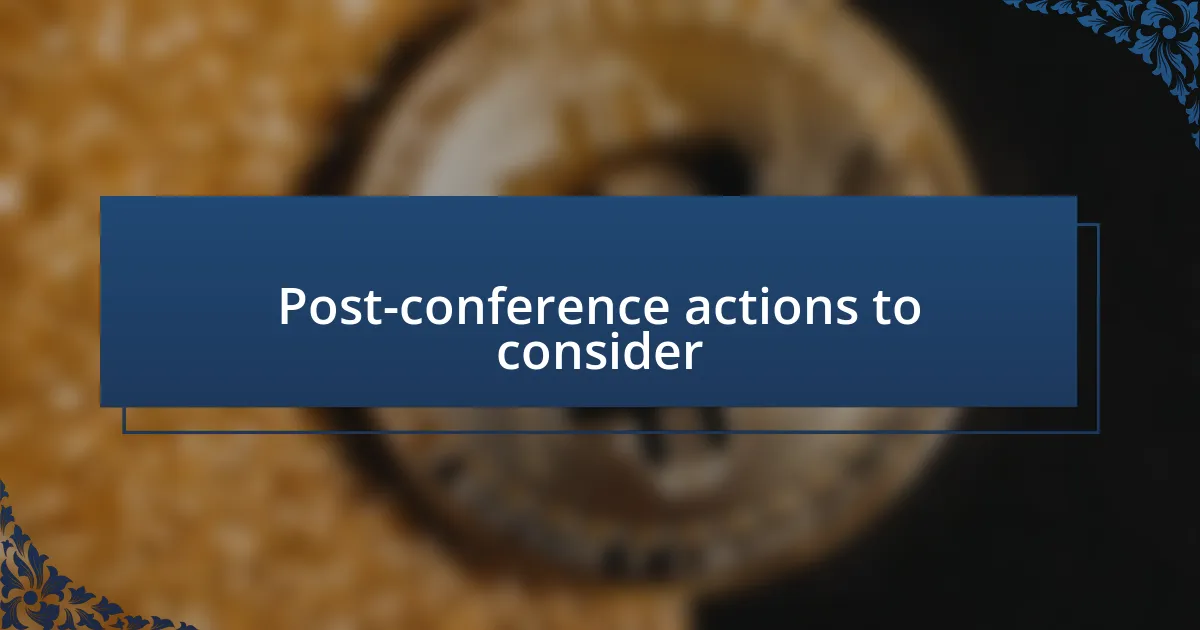
Post-conference actions to consider
After returning from a conference, it’s crucial to process what you’ve learned. I often set aside time to write down my key takeaways while the information is still fresh in my mind. This practice not only reinforces my understanding but also helps me identify specific actions I want to take based on the insights gained. Have you ever found that reviewing notes allows knowledge to blossom into something actionable?
Reaching out to the connections I made at the conference is equally important. I typically follow up with new contacts via email or LinkedIn, sharing a thoughtful note about our conversation. This small gesture can go a long way in building lasting relationships. There’s something powerful in rekindling a discussion you had over drinks; it shows that you value their insights and are keen to collaborate.
Finally, I consider how to apply what I’ve learned to my work or future projects. After attending a session on emerging technologies in mining, I revamped our team’s strategy based on innovative approaches discussed. This step turns passive attendance into active participation in the industry. How often do you find yourself returning to the office with a fresh mindset, eager to make tangible changes?

